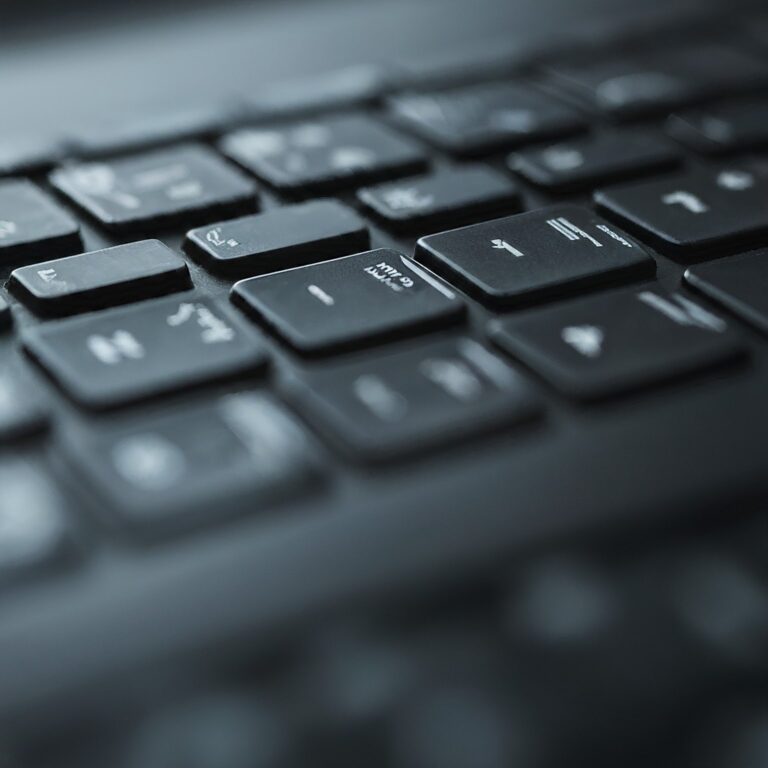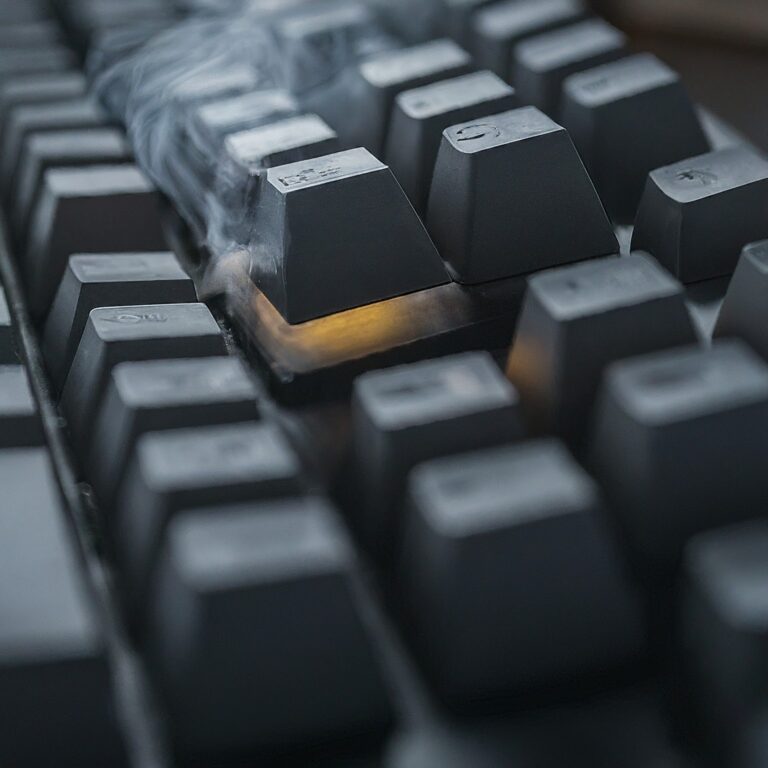Cleaning a laptop keyboard with wet wipes can be generally acceptable, but it depends on the type of wipes and the method of cleaning. It’s crucial to ensure that the wipes are not overly wet and that they don’t contain harsh chemicals that could damage the keyboard’s surface or the underlying electronics. Here’s a closer look at how to safely clean your laptop keyboard.
Introduction
Laptops are vital tools in our daily lives, but their keyboards can easily become dirty due to frequent use, accumulating dust, debris, and germs. Keeping the keyboard clean not only enhances its appearance but also contributes to better hygiene and functionality. While wet wipes can offer a convenient cleaning solution, their suitability largely depends on the type and usage. This blog post explores safe practices for cleaning laptop keyboards using wet wipes, emphasizing the importance of cautious and informed cleaning to avoid potential damage.
Proper keyboard cleaning maintains the laptop’s aesthetic appeal and functional integrity. By understanding the correct cleaning techniques and the types of wipes to use, users can effectively maintain their laptop keyboards without compromising the device’s safety.
Key Takeaways
- Suitability of Wet Wipes: Not all wet wipes are appropriate for cleaning laptop keyboards. It’s essential to choose wipes that are mildly damp and free from harsh chemicals.
- Risk of Liquid Damage: Excess moisture from wet wipes can seep into the keyboard, leading to potential damage. It’s crucial to ensure wipes are not overly saturated.
- Gentle Cleaning: Applying gentle pressure when cleaning prevents damage to the keyboard keys and their mechanisms.
- Regular Maintenance: Regularly cleaning the keyboard can prevent the buildup of dust and debris, contributing to the laptop’s longevity and hygiene.
- Alternative Cleaning Methods: Besides wet wipes, other cleaning tools such as compressed air, microfiber cloths, and isopropyl alcohol (used sparingly) can also be effective.
Selecting the Right Wet Wipes for Keyboard Cleaning
Alcohol-Based vs. Non-Alcohol Wipes
Choosing the correct type of wet wipe is crucial. Alcohol-based wipes can be effective for sanitizing but should contain a low concentration of alcohol to avoid damaging the keyboard’s surface.
Avoiding Harsh Chemicals
Wipes that contain bleach or other harsh chemicals should be avoided as they can corrode the keyboard’s material and affect the lettering on the keys.
Dampness Level
The wet wipes should be lightly moistened rather than soaking wet. Excess moisture increases the risk of water damage to the keyboard’s electronic components.
Cleaning Process: Step by Step
Powering Off the Laptop
Always turn off the laptop and disconnect it from any power source before cleaning to prevent electrical damage or short circuits.
Gentle Wiping
Gently wipe the keyboard’s surface with a mildly damp wipe. Avoid pressing too hard to prevent damage to the keys or forcing moisture into the keyboard.
Drying Off
After wiping, use a dry, soft cloth to remove any residual moisture. This step ensures that no dampness remains that could seep into the keyboard.
Key-by-Key Cleaning
For a more thorough clean, you may need to clean around each key. Be cautious and gentle to avoid dislodging the keys or damaging their mechanisms.
Precautions and Best Practices
Testing on a Small Area
If unsure about the wipe’s suitability, test it on a small, inconspicuous area of the keyboard first to check for any adverse reactions.
Frequency of Cleaning
Regular cleaning can prevent the buildup of grime and bacteria, but it’s important not to overdo it. Cleaning too frequently or too vigorously can wear down the keyboard over time.
Alternative Cleaning Tools
Consider using other cleaning tools like compressed air to blow out debris from under the keys and microfiber cloths for wiping the keyboard’s surface.
Conclusion
Using wet wipes to clean a laptop keyboard can be safe and effective if done properly. Choosing the right type of wipes, ensuring they are not too wet, and cleaning gently are key factors in avoiding damage to the keyboard. Regular maintenance using suitable cleaning methods not only keeps the keyboard hygienic but also extends its lifespan. By following the recommended practices and precautions, users can ensure their laptop keyboards remain clean and functional without risking harm to their devices.
FAQ
Q: Can I use baby wipes to clean my laptop keyboard?
A: Baby wipes are generally gentle and may be safe for use on keyboards, but ensure they do not contain lotions or oils that could leave a residue.
Q: How often should I clean my laptop keyboard?
A: Cleaning your keyboard every few weeks is usually sufficient, but this may vary based on usage and environmental factors.
Q: Can disinfectant wipes be used on laptop keyboards?
A: Disinfectant wipes can be used, provided they’re not too wet and don’t contain bleach or other harsh chemicals. Always squeeze out excess liquid before use.
Q: What should I do if I accidentally get too much moisture on my keyboard?
A: Immediately turn off the laptop and disconnect it from power. Use a dry cloth to blot away the moisture gently, and allow the keyboard to air dry completely before turning it back on.
Q: Are there any alternatives to wet wipes for keyboard cleaning?
A: Yes, alternatives include compressed air to remove debris, a soft-bristled brush for gentle scrubbing, and a microfiber cloth dampened with isopropyl alcohol for disinfecting.
- Is It OK to Clean Laptop Keyboard With Wet Wipes? - March 19, 2024
- How Long Does it Take For a Completely Dead Laptop to Charge? - March 18, 2024
- How Do You Fix a Computer That Won’t Turn on But Has Power? - March 18, 2024






